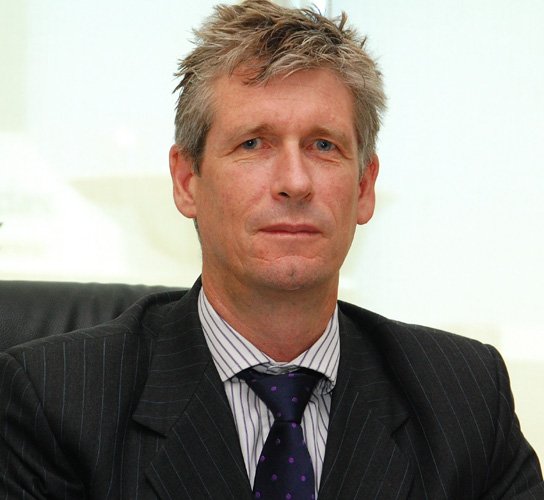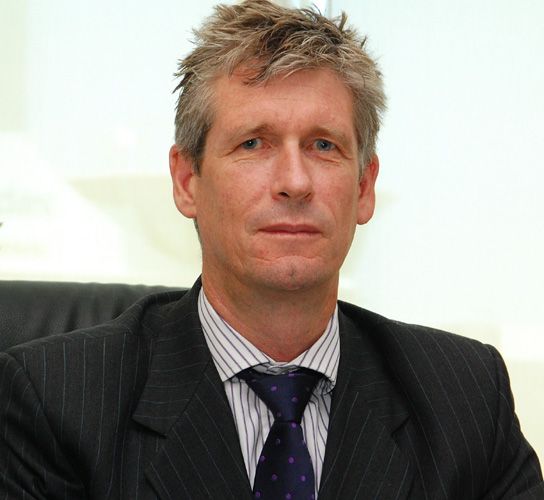Why the future is bright for financial services in the Gulf
Published by Gbaf News
Posted on August 16, 2012
5 min readLast updated: January 22, 2026

Published by Gbaf News
Posted on August 16, 2012
5 min readLast updated: January 22, 2026

By Boyd Winton, director of financial services, Bahrain Economic Development Board
This week we were very pleased to welcome PineBridge Investments, a global multi-asset class investment manager, to Bahrain, as the company announced that it had chosen Manama as the new hub for its operations in the Middle East and North Africa. PineBridge has joined more than 400 other financial institutions based in Bahrain and now one of a number of financial firms such as Notz Stucki & Cie and Altaira Asset Management who have moved into Bahrain in the last year.
This positive news reflects the strong position that the Middle East market is able to boast. Of course, that’s not to say that the region has been unaffected by political and social unrest last year, or that it is immune to the impact of the global financial crisis that has been ongoing since 2008. But the regional economy has been more robust and economic growth has remained strong – particularly within the Gulf region. More importantly, the long term factors driving expansion in the Gulf are unchanged as countries increasingly use hydrocarbon wealth to fund economic diversification and infrastructure investment.
As financial firms depend upon the economy for growth, it is not surprising that at a time when major developed economies in Europe and the US are struggling, businesses are increasingly looking to growth markets. For asset managers, the Middle East, and particularly the Gulf economy (which is now worth well over a trillion dollars and expected to grow to two trillion dollars by 2020), provides a particularly attractive opportunity.
This is why, during 2011, the three major financial centres in the Gulf – Bahrain, Dubai International Financial Centre and Qatar Financial Centre – all saw an increase in the number of financial firms registered. As each of these centres continues to concentrate the type of offer they provide on particular sectors, there is every reason to believe that this complementary growth can continue. Indeed, in Bahrain, our close trade ties mean that two fifths of our non-oil exports now go to our neighbours in the six counties of the Gulf Cooperation Council (GCC). Similarly, among our wholesale banks, approximately a third of their assets are now located in the GCC – up from about a fifth ten years ago.
Bahrain offers a number of advantages for financial services firms, like PineBridge Investments, who are looking to take advantage of these markets. First of all, we provide the best access to the GCC market, in particular to Saudi Arabia, the largest economy in the region which accounts for more than 40% of the Gulf economy. Bahrain is connected to Saudi Arabia by the 25km King Fahd Causeway and many financial services firms use Bahrain as a location from which to access the Saudi market.
Bahrain also has a long track record and highly-respected regulation, which means that businesses can invest in Bahrain with confidence. Bahrain was the first country in the Gulf to discover oil, and we were also the first to begin to diversify our economy in the late 1960s to develop an international financial centre. This means that Bahrain’s financial services sector has a track record that spans across more than four decades and regulation that has been tried and tested over the years.
Alongside the quality of our regulation, Bahrain provides the highest skilled local workforce in the region. This is, of course, important to us because it creates high quality jobs for Bahrainis – indeed two thirds of the 14,000-strong workforce in financial services is Bahraini nationals. But it is also important because it provides international businesses with the local workforce they need to build a sizeable presence in the region with local knowledge and without the expense of flying in expatriate workers. Bahrainis are present at all levels of businesses and you will find Bahraini workers in senior positions across the region.
Our long track record also means that we have fully diversified across the full range of financial services. Beyond Bahrain’s traditional strength in banking the Kingdom is now home to 36 insurance firms, including 26 locally incorporated firms and over 2,700 authorised funds, including 121 local funds. Bahrain is also home to the world’s largest concentration of Islamic financial institutions – presently, there are 27 Islamic banks in Bahrain, whose assets under management total $25.3 billion.
Finally, at a time when companies are keeping a keen eye on costs it is more welcome than ever that we also offer some of the lowest costs of doing business in the region.
This has meant that in Bahrain, in spite of political unrest at the beginning of 2011 and difficult global economic conditions, we saw a 3% increase in the number of institutions based in the Kingdom over the twelve months to January 31st 2012, and there are now 412 regulated financial institutions based here – the largest number in the region. We also recorded growth of 4.7% in the financial sector’s output over the course of 2011.
In Bahrain, our success is driven by international investors’ appetite for investing in the region. Of course, what the term ‘international investors’ means has changed notably in recent years. Whereas in previous years this tended to mean investors from Europe or America, the interest we have seen from businesses and investors in Asia means that investment in our economy nowadays is as likely to come from Mumbai as it is from Manhattan.
Given this strong international interest and the robust economic growth that is underpinning the rationale behind these decisions, we are confident that the region will continue to attract investment from across the globe. For Bahrain, and for the rest of the region, the future is bright.
Explore more articles in the Finance category
